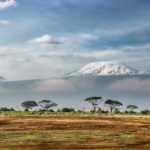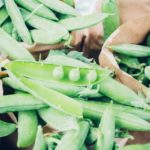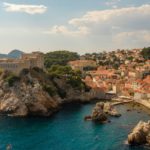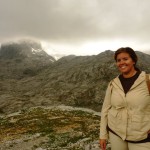Sparked Into Activism in Italy
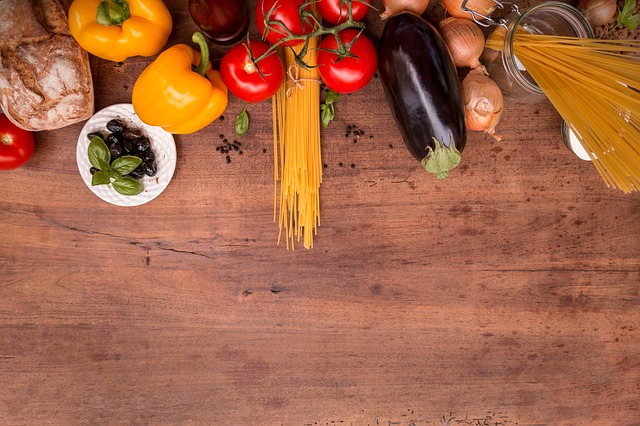
My recent trip to Italy was very different from the others. In 2010, my first time in the country, I was 100% a tourist. It was the birth of my love affair with everything Italian and made we want to return again and again. My fourth visit, last September, had an entirely new flavor. My connection to the people and the lifestyle was at the core of the trip. This time I was not a tourist. I delved deeper into the culture and had an unexpected discovery of my roots. I found my great grandmother’s home, made a bunch of new friends and, of course, did all of the eating of amazing food and drinking of spectacular wine that is required.
It was a trip of extremes. I started in the south, spending time with a newly-discovered relative who introduced me to the slow, nurturing way of village life. I was surrounded by peace and quiet, days unfolding with no agenda, picking up ricotta from the farm and returning home to make pasta and share it in a long, leisurely meal around the table. Time slowed down and I thrived.
At the other extreme, during the last week of the trip, I traveled north, to the bustling, noisy city of Turin to attend one of the biggest food festivals in Italy, Terra Madre Salone del Gusto. The people of Turin join forces with the Slow Food Movement and put on a five-day food rave. I mean, they really do it in style. Just to give you some idea of the numbers, here are some stats from the event: 1,000,000 visitors – 900 exhibitors from 100 countries – 7,000 Terra Madre delegates from 143 countries. Slow Food is a 30-year-old grassroots movement that addresses climate change, provides food security for all, supports the global community of farmers and food producers, treats animals humanely and fights for fair treatment of workers in the food industry. These people speak to my heart.
I was surrounded by peace and quiet, days unfolding with no agenda, picking up ricotta from the farm and returning home to make pasta and share it in a long, leisurely meal around the table.
I was one of the delegates, representing my local Slow Food chapter in Sonoma County, CA. Being part of this festival was sort of like being part of a big club and hanging out with people who have the same interests and passions. A big food party to learn and hear ideas from people around the world. I like to think of myself as international. I want to get out of my comfort zone and expand my knowledge.
I majored in Life Science in college, so the bookish scientist in me loves this. I have always been fascinated with food chains, plant evolution, bees, pollinators. I like learning details and learning from people who are hands-on in the field. Attending this conference and being surrounded by a global consortium of food activists, the activist in me was ignited. These folks acted as catalysts for me and for their communities. They are courageous and brave.
During the conference, I attended many panel discussions. One that really moved me and stood out from the others was on the topic of seeds. It was titled, “Banks, Libraries and Granaries: Where Seeds Are Conserved.” The panel consisted of seed savers from Palestine, Nepal, Italy, Russia, Kenya, and New Jersey. What is a seed bank and why is seed saving so important? Monsanto, Dow and other agribusiness conglomerates want to control seeds and put their patent on the food supply.
They sell seeds that are resistant to Roundup, or that are genetically modified to produce a higher yield. This may help the farmer make more money, but when yield is chosen over diversity, we lose genetic variety. For example, India once had 200,00 rice varieties; now there are only eight globally-traded strains of rice. Genetic variety guarantees resilience to disease, pests, and changes in climate. The protectors of the seeds realize the importance of plant diversity and want to make sure that strong, resilient heritage varieties remain on the planet.
These people walked the walk and talked the talk. They spent each working day of their lives in service to the seeds.
This becomes more than just a fun talk about seeds and seed saving. It is an act of dissent, of civil disobedience. Take the Svalbard Global Doomsday Seed Vault in Norway, for example. One million seeds lay frozen in a vault under the permafrost. These seeds and their precious DNA are protected. The bank was started by a Russian scientist named Nikolai Vavilov. After living through famine in Russia, Vavilov spent two decades traveling to 64 countries collecting seeds and genetic material to ensure Russians would never again suffer from a shortage of food. His methods were scientifically sound, but he went against the government’s distortion of the facts (think, climate change deniers). He became a scapegoat for Stalin, and ironically died of starvation in a Russian gulag.
Now, as I listened to the members of the panel talk about how they protect the seed knowledge of the world, I was so moved. These people walked the walk and talked the talk. They spent each working day of their lives in service to the seeds. Moayad from Palestine risked imprisonment or worse each day as he provided a place for local farmers to share heritage seeds. Daniel Wanjama from Kenya set up small seed exchanges in communities and prevented members from eating the seed supply during time of hunger and food shortage. He knew they would need those seeds come planting season. Dikshya, the daughter of a farmer from Nepal, is working to rebuild the loss of agricultural land after the 2015 earthquake.
My trip to Italy changed me and brought to the surface the activist that has been simmering in my heart for a long time.
When I got home to Northern California after the conference, there was a difference in me. My trip to Italy changed me and brought to the surface the activist that has been simmering in my heart for a long time. I want to become more involved in Slow Food and in food production in my local area. I want to discover ways to keep the inspiration in me alive. I want to find the local seed warriors and maybe join the movement. For me, Slow Food is an excellent venue in which to explore that part of me.
There are two seed banks in my area, each only about 10 miles away from my home. What am I waiting for? How can I be courageous? Now that I am back in my little comfort zone, what can I do to give back and get involved? After wandering through my local seed bank and taking it in, I picked up a package of arugula seeds, took them home and planted them in my porch garden. I don’t have a yard, but I’m working on a little container garden where I can grow my own vegetables, let some of them go to seed and perhaps trade them in at my local the seed exchange. I have faith in the power of a seed to start something new and sustainable and exhilarating and meaningful for me.



